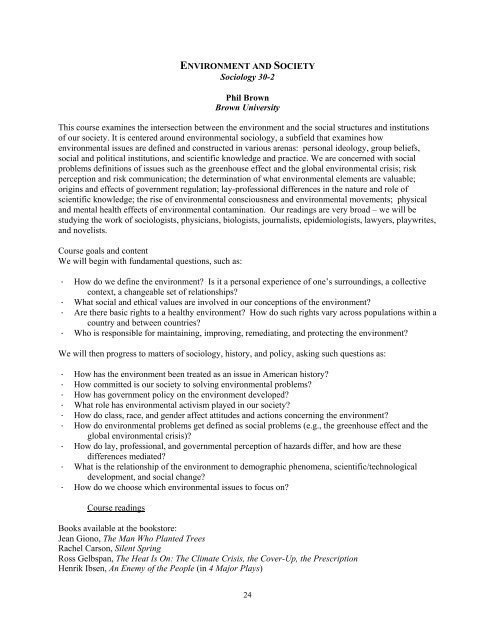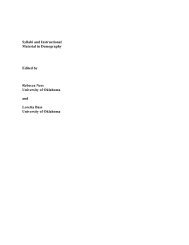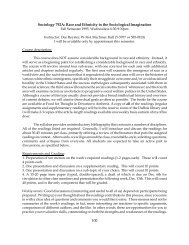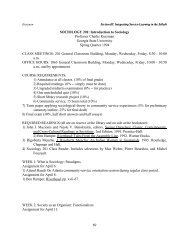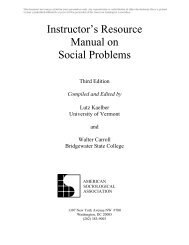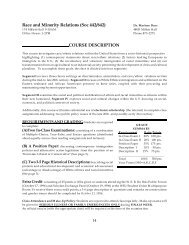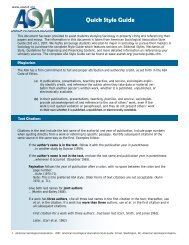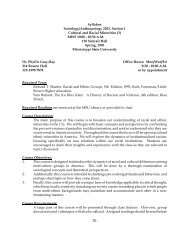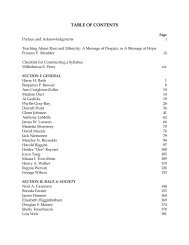Environmental Sociology - American Sociological Association
Environmental Sociology - American Sociological Association
Environmental Sociology - American Sociological Association
Create successful ePaper yourself
Turn your PDF publications into a flip-book with our unique Google optimized e-Paper software.
ENVIRONMENT AND SOCIETY<br />
<strong>Sociology</strong> 30-2<br />
Phil Brown<br />
Brown University<br />
This course examines the intersection between the environment and the social structures and institutions<br />
of our society. It is centered around environmental sociology, a subfield that examines how<br />
environmental issues are defined and constructed in various arenas: personal ideology, group beliefs,<br />
social and political institutions, and scientific knowledge and practice. We are concerned with social<br />
problems definitions of issues such as the greenhouse effect and the global environmental crisis; risk<br />
perception and risk communication; the determination of what environmental elements are valuable;<br />
origins and effects of government regulation; lay-professional differences in the nature and role of<br />
scientific knowledge; the rise of environmental consciousness and environmental movements; physical<br />
and mental health effects of environmental contamination. Our readings are very broad – we will be<br />
studying the work of sociologists, physicians, biologists, journalists, epidemiologists, lawyers, playwrites,<br />
and novelists.<br />
Course goals and content<br />
We will begin with fundamental questions, such as:<br />
· How do we define the environment? Is it a personal experience of one’s surroundings, a collective<br />
context, a changeable set of relationships?<br />
· What social and ethical values are involved in our conceptions of the environment?<br />
· Are there basic rights to a healthy environment? How do such rights vary across populations within a<br />
country and between countries?<br />
· Who is responsible for maintaining, improving, remediating, and protecting the environment?<br />
We will then progress to matters of sociology, history, and policy, asking such questions as:<br />
· How has the environment been treated as an issue in <strong>American</strong> history?<br />
· How committed is our society to solving environmental problems?<br />
· How has government policy on the environment developed?<br />
· What role has environmental activism played in our society?<br />
· How do class, race, and gender affect attitudes and actions concerning the environment?<br />
· How do environmental problems get defined as social problems (e.g., the greenhouse effect and the<br />
global environmental crisis)?<br />
· How do lay, professional, and governmental perception of hazards differ, and how are these<br />
differences mediated?<br />
· What is the relationship of the environment to demographic phenomena, scientific/technological<br />
development, and social change?<br />
· How do we choose which environmental issues to focus on?<br />
Course readings<br />
Books available at the bookstore:<br />
Jean Giono, The Man Who Planted Trees<br />
Rachel Carson, Silent Spring<br />
Ross Gelbspan, The Heat Is On: The Climate Crisis, the Cover-Up, the Prescription<br />
Henrik Ibsen, An Enemy of the People (in 4 Major Plays)<br />
24


